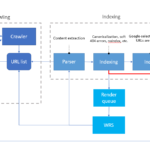Unlearn and Learn: The Path to True Transformation🏆
By Ashima Kapoor, Nutrition & Fitness Consultant
In the pursuit of health and fitness, many of us are held back by long-standing misconceptions that prevent real progress. To truly transform your body and mind, it’s not just about learning new habits—it’s also about unlearning the myths that have shaped our approach to fitness and nutrition. This journey of transformation begins by shedding those false beliefs and embracing sustainable, proven practices that lead to long-term success.
Step 1: Unlearning Common Fitness Myths ❌
Before building new habits, it’s crucial to break free from the misinformation that keeps us stuck. Let’s debunk some common myths that can sabotage your fitness goals:
➡️ Eating rice will make you gain weight
Rice, especially white rice, is often wrongly blamed for weight gain. In truth, no food on its own causes weight gain or loss—what matters is the overall balance of calories. Rice can be part of a balanced diet when portioned correctly.
➡️ Eating after 6 PM or 7 PM leads to weight gain
The time of day you eat is not what causes weight gain—it’s the total calories consumed throughout the day. The notion that eating late at night will make you gain weight is a myth. Focus on your daily intake and nutritional balance instead.
➡️ Saying “No” to food at social gatherings is awkward
We often feel pressure to eat certain foods in social settings to avoid offending others. However, it’s okay to prioritize your health. Saying “No” to foods that don’t support your goals is an act of self-respect and should not be awkward.
➡️ Food is the best therapy
Turning to food for comfort may offer temporary relief but using it as emotional therapy often leads to unhealthy eating patterns. True emotional healing comes from mindfulness, therapy, or engaging in activities that nurture mental well-being, not through food.
➡️ Working out during pregnancy is dangerous
Exercising during pregnancy, when done correctly and under medical supervision, is safe and highly beneficial. It helps manage weight, improve mood, and even ease the delivery process. Always consult your doctor, but remember that staying active is generally encouraged.
➡️ Drinking methi or jeera water will burn fat
No drink alone can burn fat. While methi (fenugreek) and jeera (cumin) have certain health benefits, they won’t replace a balanced diet and regular exercise. Sustainable fat loss comes from calorie control and consistent physical activity.
➡️ Women shouldn’t build muscles
The misconception that strength training is only for men is outdated. Building muscle is crucial for everyone. For women, it’s a key factor in boosting metabolism, improving bone health, and increasing strength for everyday tasks, leading to a better quality of life.
➡️ Starving yourself leads to weight loss
While drastically reducing calories may lead to short-term weight loss, it often results in muscle loss and slows down metabolism, making it harder to maintain your progress. Sustainable weight loss comes from a balanced approach, eating enough to fuel your body while maintaining a calorie deficit.
➡️ Socializing always means indulging in food
Spending time with friends doesn’t mean you have to compromise your goals. You can still enjoy social events while making mindful food choices. It’s about balancing enjoyment and health, not indulgence.
➡️ The weighing scale is the only indicator of health or progress
The number on the scale is just one measure of progress, and it’s often not the best one. Health and fitness should be gauged by your energy levels, strength, mental well-being, and how your clothes fit. Non-scale victories are often far more meaningful.
➡️ Self-care is selfish
Self-care is not selfish—it’s essential. Taking time to care for your physical and mental health ensures you can be the best version of yourself. Whether it’s setting aside time to exercise, eat well, or relax, self-care is an important part of maintaining balance.
➡️ Cheat days are a good way to treat yourself
The concept of a “cheat day” can lead to an unhealthy cycle of bingeing and restricting. Instead, adopt a balanced approach where occasional treats are enjoyed in moderation. This promotes a healthier relationship with food and avoids the guilt that often comes with “cheating.”
Step 2: Learning Sustainable Fitness Practices😊
Now that we’ve cleared up the myths, let’s focus on what really works. These key principles will help guide you toward a healthy, sustainable lifestyle that supports your fitness goals.
✅Food is fuel, not therapy—nutrition matters
Your body relies on good nutrition to function at its best. Instead of using food to manage emotions, think of it as the fuel that powers your workouts, your day, and your overall life. Prioritize nutrient-dense foods that provide your body with the energy it needs.
✅ It’s okay to say “No” to foods that hinder progress
Learning to say “No” to certain foods is empowering. You don’t need to feel guilty about making choices that align with your fitness goals. Over time, it becomes second nature to put your health first.
✅You can socialize while making mindful choices
Socializing doesn’t have to mean compromising your goals. Whether dining out or attending events, you can enjoy yourself while making mindful choices that align with your fitness objectives.
✅No food is inherently bad—it’s about portion control
Instead of labeling foods as “good” or “bad,” focus on portion sizes. You can enjoy all types of food as long as they fit within your daily nutritional needs. This approach fosters a healthier, more balanced relationship with food.
✅A slice of cake won’t derail your progress
Having an occasional treat won’t ruin your efforts. It’s all about balance—if you eat healthily most of the time, a slice of cake or a treat now and then is perfectly fine. Consistency is what drives results, not perfection.
✅ There’s no need to starve to lose weight
Starvation is not the answer to weight loss. Instead, focus on eating nutrient-dense foods in the right amounts to maintain a slight calorie deficit. This approach will help you lose weight sustainably without compromising your health.
✅ Develop a healthy relationship with food
Building a positive relationship with food is crucial. View food as nourishment, not something to fear or feel guilty about. A balanced, flexible approach to eating leads to long-term success.
✅Strength training is essential for a quality life
Weight training isn’t just for building muscles—it’s a crucial part of maintaining a healthy metabolism, supporting strong bones, and improving your overall quality of life as you age.
✅ No fancy diets are needed—stick to the basics
You don’t need complicated diets to see results. The most effective way to eat is often the simplest: focus on balanced, home-cooked meals with wholesome ingredients. This is not only more sustainable but also enjoyable.
✅ Home-cooked meals are the best
Preparing meals at home allows you to control your ingredients, portion sizes, and nutritional value. Stick to simple, nutritious home-cooked meals for the best results.
✅ Self-care is essential
Taking time for self-care ensures your physical and mental well-being are in check. Prioritize time for exercise, proper nutrition, and relaxation—it’s not selfish, it’s necessary for living a healthy life.
✅Embrace the concept of Refeed Days
Instead of “cheat days,” consider incorporating refeed days, where you intentionally increase your calorie intake to replenish energy and keep your metabolism firing. This can help prevent burnout and keep you on track long-term.
Transformation: Unlearn, Learn, and Thrive
True transformation is more than just adding new habits—it’s about unlearning the myths that hold us back and embracing sustainable practices that support our long-term well-being. While each fitness journey is unique, these core principles provide a solid foundation for success.
Here’s to a happy and healthy life for all! 🤘🏻🤘🏻
By Ashima Kapoor, Nutrition & Fitness Consultant









